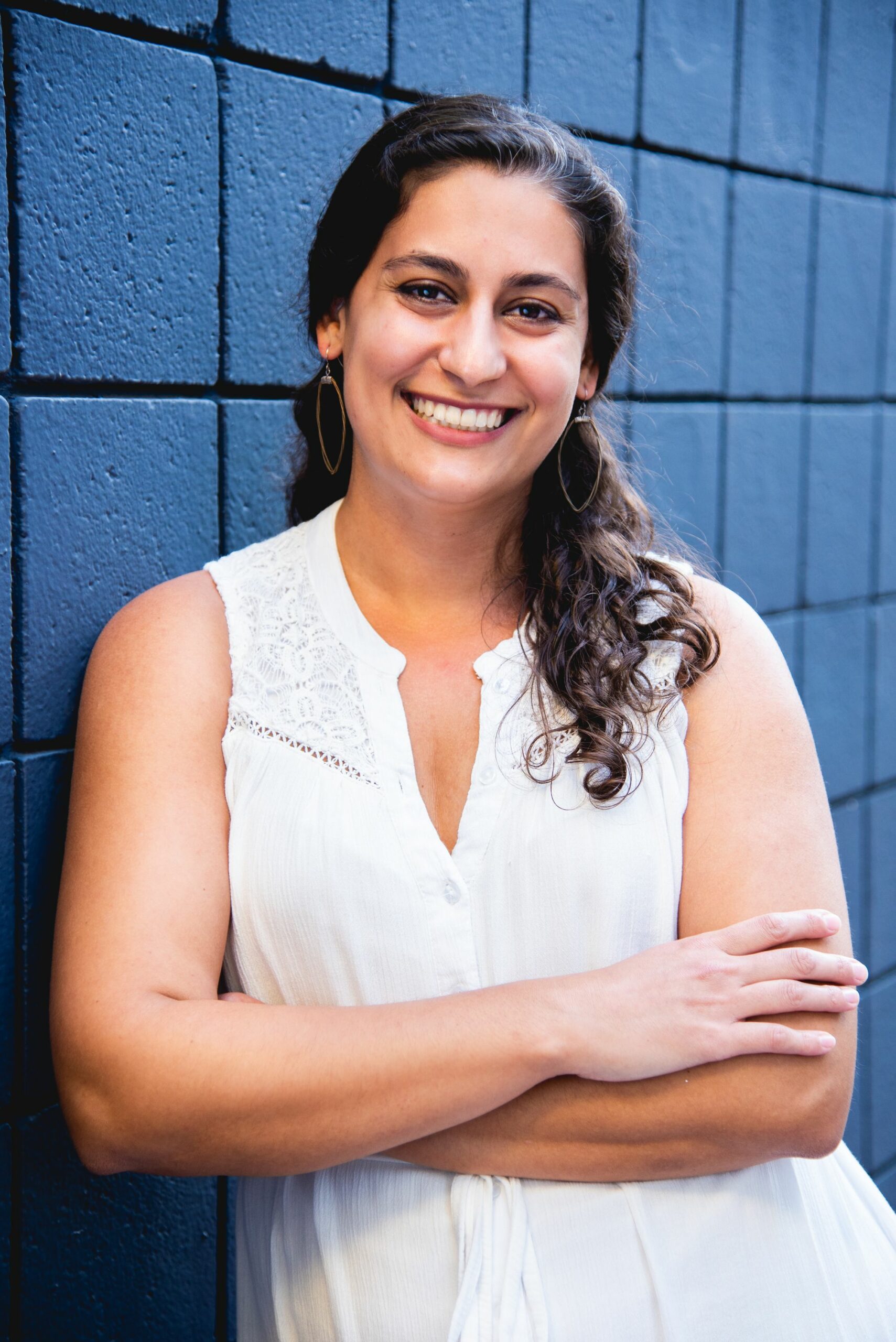
About 25 years ago, dietitians Evelyn Tribole and Elyse Resch developed an entirely different approach to nutrition, one that they found worked long-term for their clients: intuitive eating. Whether or not people’s weight changed, this approach helped people heal from disordered eating, feel better, stop obsessing over food, and generally live happier and more well-adjusted lives. In the decades since, research has shown that approaching nutrition through an intuitive eating framework leads to improved psychological outcomes and chronic disease risk.
What we’ll cover:
After almost four decades of working with clients on eating and movement habits, Tribole and Resch began to notice a pattern. Weight loss efforts would work for a while, then the clients would regain the weight, feel discouraged, and come back again only to keep repeating the cycle.
And studies showed the same pattern. Even after billions of dollars funneled into research and the diet industry, nothing seemed to stick long-term. 95% of people restricting or manipulating food intake (even if it wasn’t called a “diet”) regained all of the weight back after a few years, and two-thirds of people regained even more weight than they had lost. Among people who were dieting, weight cycling (losing and regaining weight – often more weight than was lost in the first place) became commonplace. This is linked to greater health risks than being in a larger body to begin with. The more diets became popular, the more society labeled thin as “good” and fat as “bad”, the more lifestyle-related chronic diseases exploded. The more we dieted, the more unhappy and unhealthy we became.
Think for a moment about two kids in the same family who can have completely different body sizes. They are raised by the same parents with the same rules. They are in the same financial and social environment. And yet their bodies are different. The current way of approaching this is to think that the child in a larger body is gluttonous and must restrict what they are eating in order to look more like the child in a smaller body.
What messages is that child getting? You and your body are not to be trusted. You are not worthy. You must change. Your sibling has “willpower” and you do not. This can lead to that child sneaking food, binge eating, restrictive eating, and ultimately a lifelong struggle with weight and self-worth. For a child whose genetics predispose them to being in a larger body, we are telling them to fight their genes. To fight their body. Ultimately, this leads to weight cycling, a dysregulated metabolism, and long-term weight gain.
We have equated weight to health, but we are missing so much of the picture. Research shows that lifestyle – physical activity levels, eating patterns, sleep, and stress management – are much greater indicators of health status than body size. 30% of people in “normal weight” bodies are, in fact, in the highest risk category for chronic disease. People in the “overweight” category have the lowest mortality rates than any other group. It’s time that we stopped idealizing a particular body size and making assumptions about people’s behaviors based on their bodies. Instead, let’s start looking at people as individuals with different genetics, histories, needs, and desires.
Think about the times when you have been told that a food is “off-limits” or that you can only have a certain amount or only eat it on special occasions. What does your relationship to that food become? When we restrict certain food types or amounts, we trigger an innate response left over from our hunter-gatherer ancestors.
When we can’t have certain foods or a certain amount of food, our body thinks it is in a time of scarcity, that it is at risk of starvation. As a result, it will start seeking out as much high calorie food as possible, fixating on it so that we can stock up in order to survive until there is regular access to food again. We settle into a scarcity mindset. Our metabolism slows and we reach a state of primal hunger.
This is what happens when we impose restrictive eating patterns on ourselves. At first, we focus all of our energy on harnessing our willpower, controlling what we’re eating, when we’re eating, how much we’re eating. And, for a while, it seems to be working. All the while, our bodies are getting more and more into scarcity mode and into believing it’s starving. And the moment life gets challenging, we reach a breaking point, and the rigid control waivers, we feel totally out of control around food. We think about food constantly. We binge.
And this has nothing to do with willpower – it is simply a biological survival mechanism that in time becomes more and more powerful and leads us to breaking our diets or restriction, blaming ourselves for “failing,” gaining weight, and feeling like it’s harder than ever before to “control” our eating.
Enter intuitive eating. The opposite of scarcity mindset. Intuitive eating encompasses 10 principles that ultimately help us develop a healthier relationship with food and our bodies. When we practice intuitive eating, we stop restricting food types or quantities. We allow forbidden foods back in and consider them equal to all of the nutritionally dense foods we typically force ourselves to eat. And then, in time (it takes some time for us to regulate and get used to having these foods readily available), those forbidden or restricted foods lose their power over us.
Intuitive eating is the most natural thing in the world – we were born intuitive eaters – our bodies know what and how much to eat. But we have been conditioned to follow external rules about what and how we should eat rather than the internal cues our bodies give us. It takes time to re-learn how to listen to and follow our body’s cues. It also helps to understand a bit of nutrition so that we can learn how to build satisfying and nourishing meals and snacks. This is why it can be really helpful to work with an intuitive eating dietitian or pick up a copy of the latest edition of Intuitive Eating or the workbook (or better yet, both).
We thought that at first too, but it is simply not true. This is primarily because, once normalized, these foods start to lose their power. Our bodies no longer crave them in an out-of-control way because they know they can have these foods at any time.
When we practice intuitive eating, we are getting in closer touch with how different foods make us feel, and we build the desire to nourish ourselves with foods that make us feel good long term. This is also a process, as many of us are disconnected from how different foods make us feel, and it takes time to reconnect with our physical and emotional responses. Ultimately, intuitive eating doesn’t mean just following impulses or urges with no consideration for our well-being. It is a self-care practice, which means our goal is to feel better and trust ourselves more.
We like to think of intuitive eating as responding rather than reacting. In certain moments, you might have certain urges – like when you are working on a problem at work that seems impossible, and you have the impulse to just quit. And sometimes we do but usually we are thinking about the long game. We are thinking about our deep desires and are able to take a step back, see the bigger picture, and work through the issue. We make decisions for our long-term wellbeing rather than by reacting to the short-term emotion. We pay attention to how our decisions will affect us, will make us feel in the future, and decide what to do based on that, rather than based on our immediate reaction.
Intuitive eating is the same way. Sometimes, we feel anxious or stressed and so we eat comfort foods. At the same time, we pay attention to how different foods make our bodies feel. We work to give ourselves coping mechanisms aside from just food so that we can feel better long-term – talking to friends, going on walks, meditating, seeing a therapist. Eventually, we don’t often eat when we are not hungry or past the point of comfortable fullness because we are making decisions based on what feels best in our body. We are following our intuition rather than our impulse.
In order to practice intuitive eating, it is important to release our expectations around how bodies need to look in order to be worthy. When we practice intuitive eating, our bodies may shrink, expand, or stay the same, all of which are okay.
Get one-on-one support through our online nutrition counseling. Schedule a free Connection Call with us to see if we’re the right fit for you!
For more in-depth reading, check out our resources page.
This article was written and reviewed by Jasmine Hormati, MS, RD, CDN, a registered dietitian and Certified Intuitive Eating Counselor. She specializes in eating disorder recovery, healing from chronic dieting, and body image work using a weight-inclusive and intuitive eating approach. Jasmine earned her Bachelors of Science in Conservation and Resource Studies form University of California, Berkeley and her Master of Science in Nutrition and Public Health from Teachers College, Columbia University.

My team and I here to help you reconnect to your inner wisdom and feel more confident in your here-and-now body. Eating doesn’t have to be complicated or restrictive.
We’ll support you through your intuitive eating journey so you can make peace with food, movement, and your body so you can show up in your life as your most authentic self.
For more lessons and words of encouragement, sign up for my nutrition newsletter!

mendinground nutrition sits on the traditional and unceded lands of the Lenape people, now called New York, New York. We honor the people who originally stewarded the land and are committed to creating a more equitable world.
Copyright 2024 Mendinground Nutrition